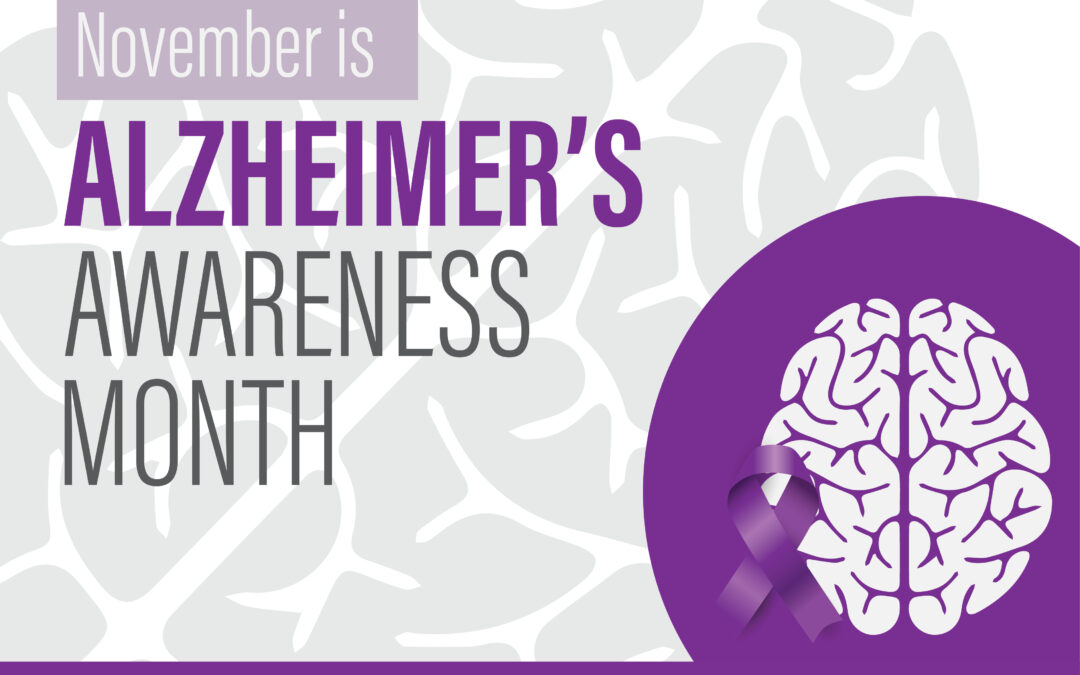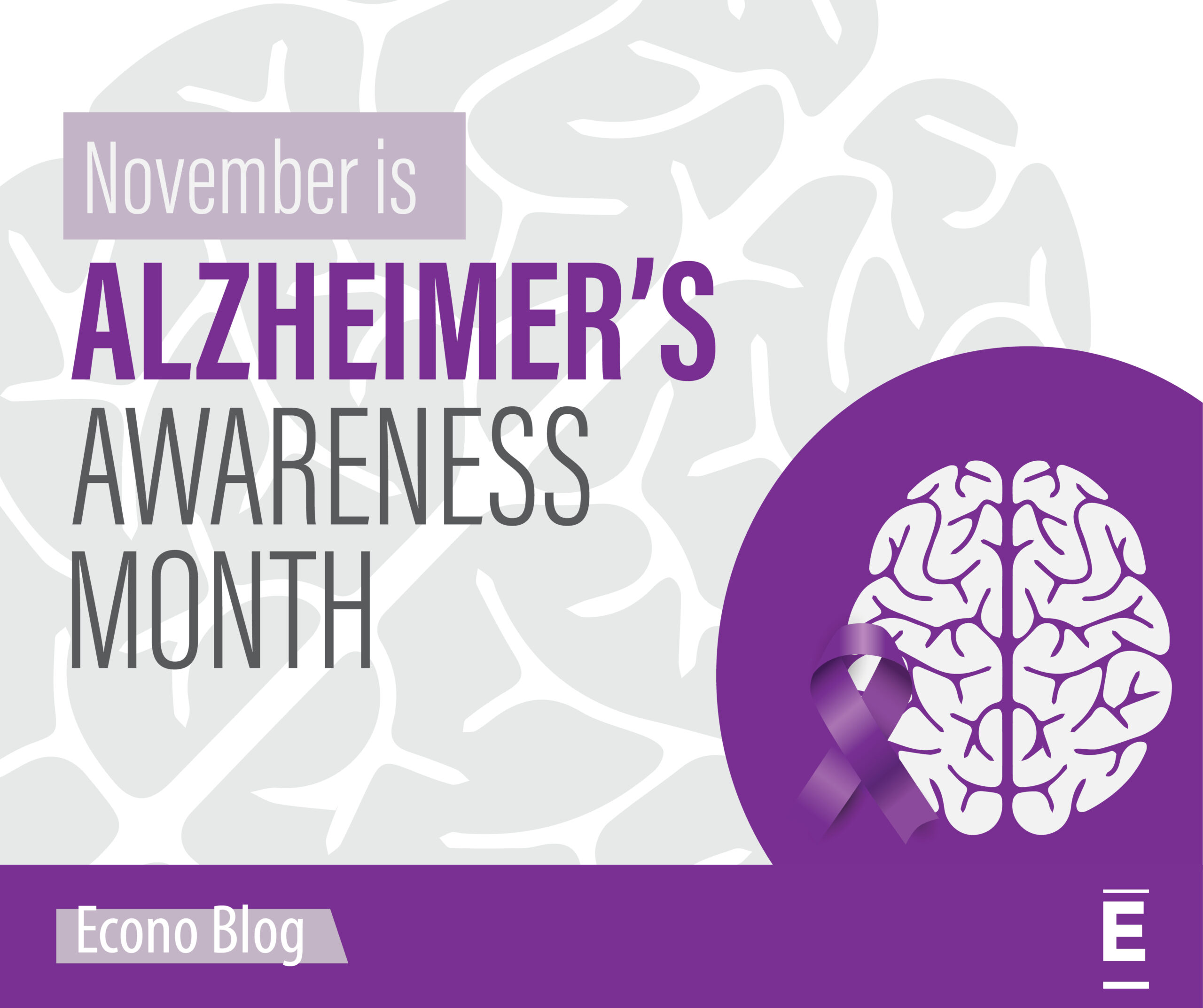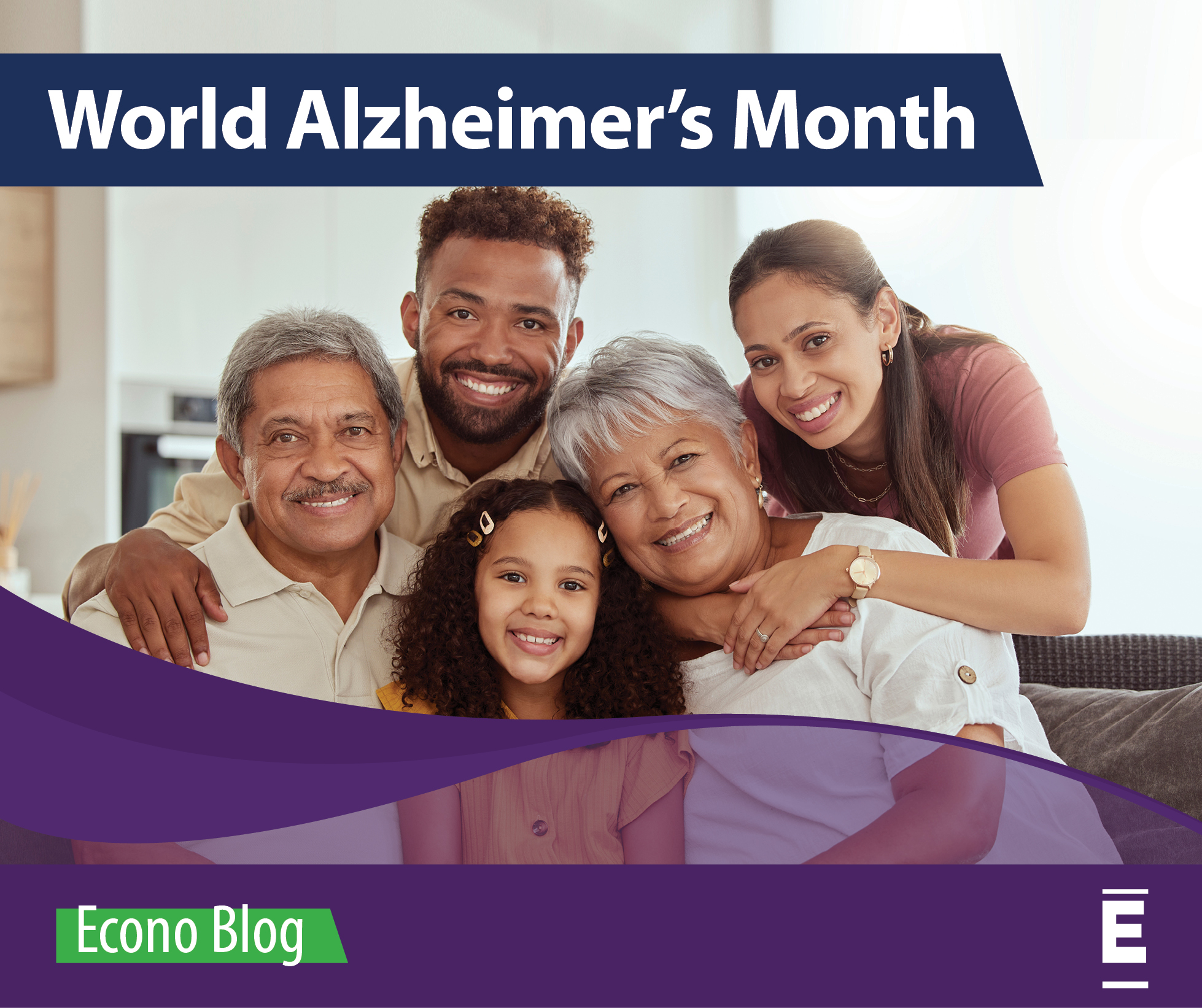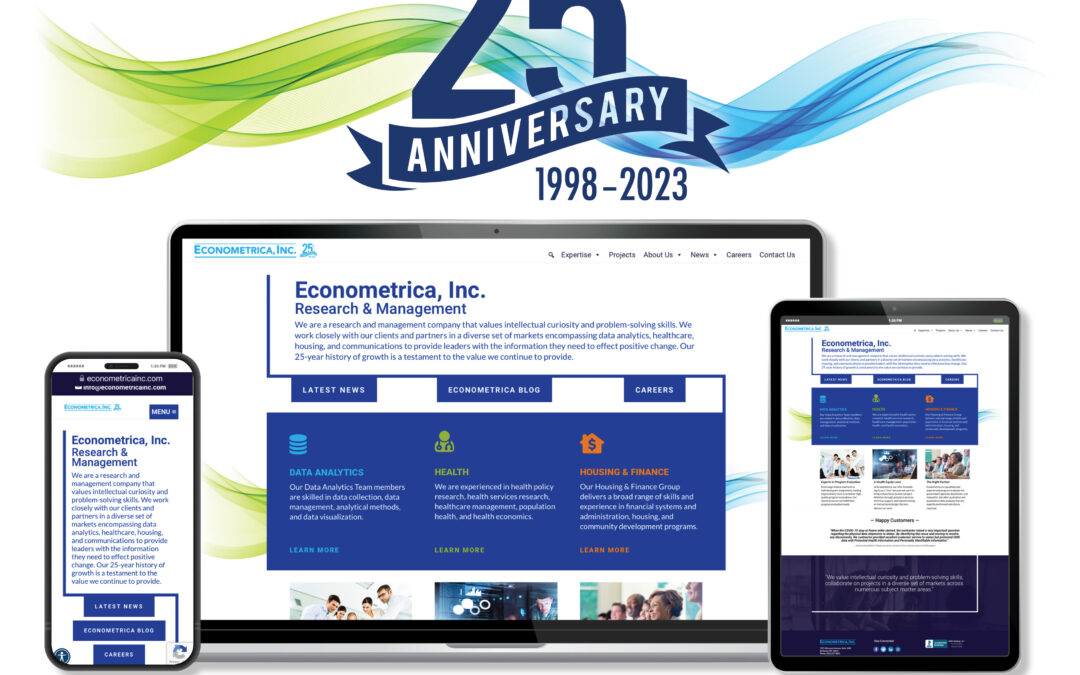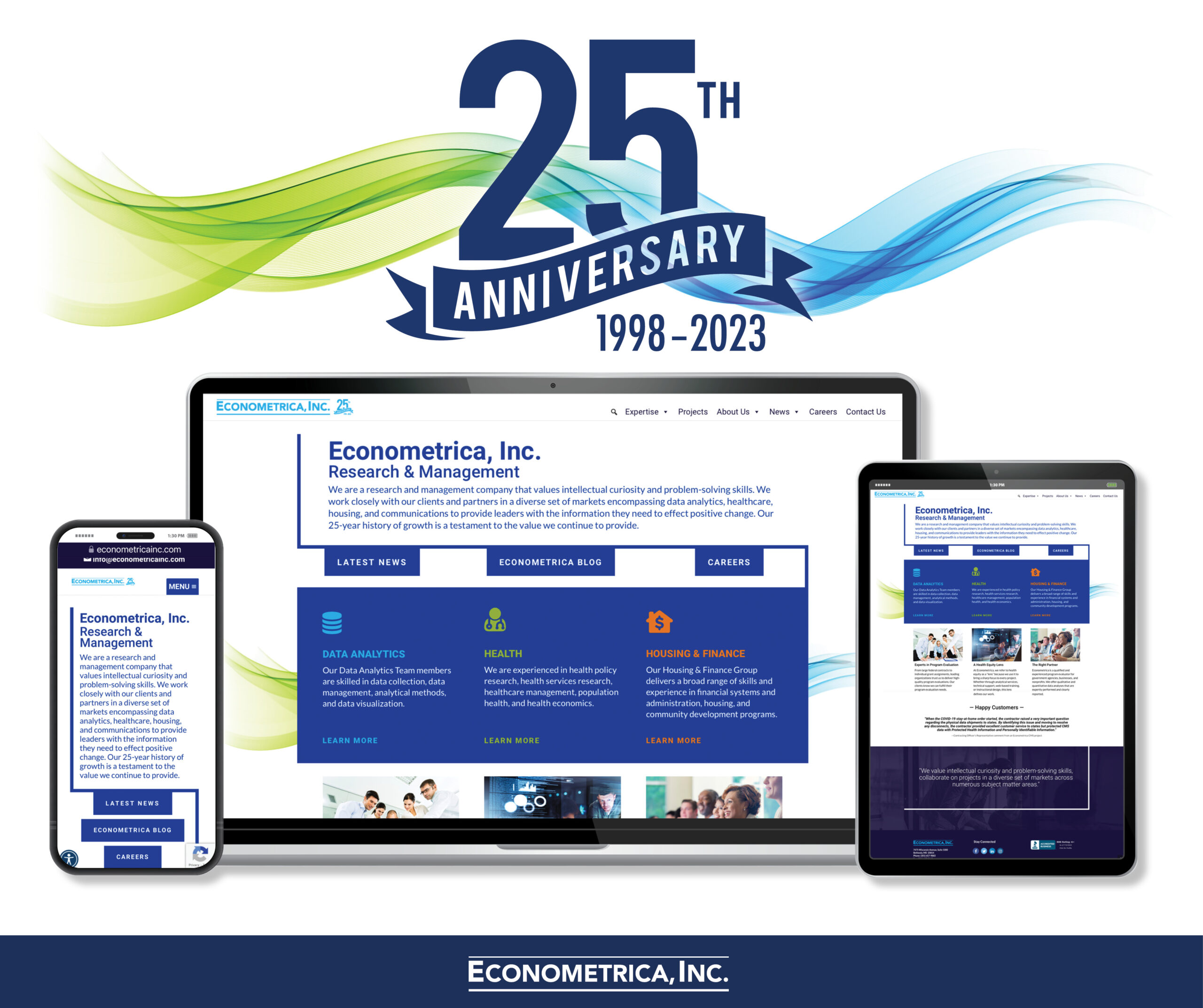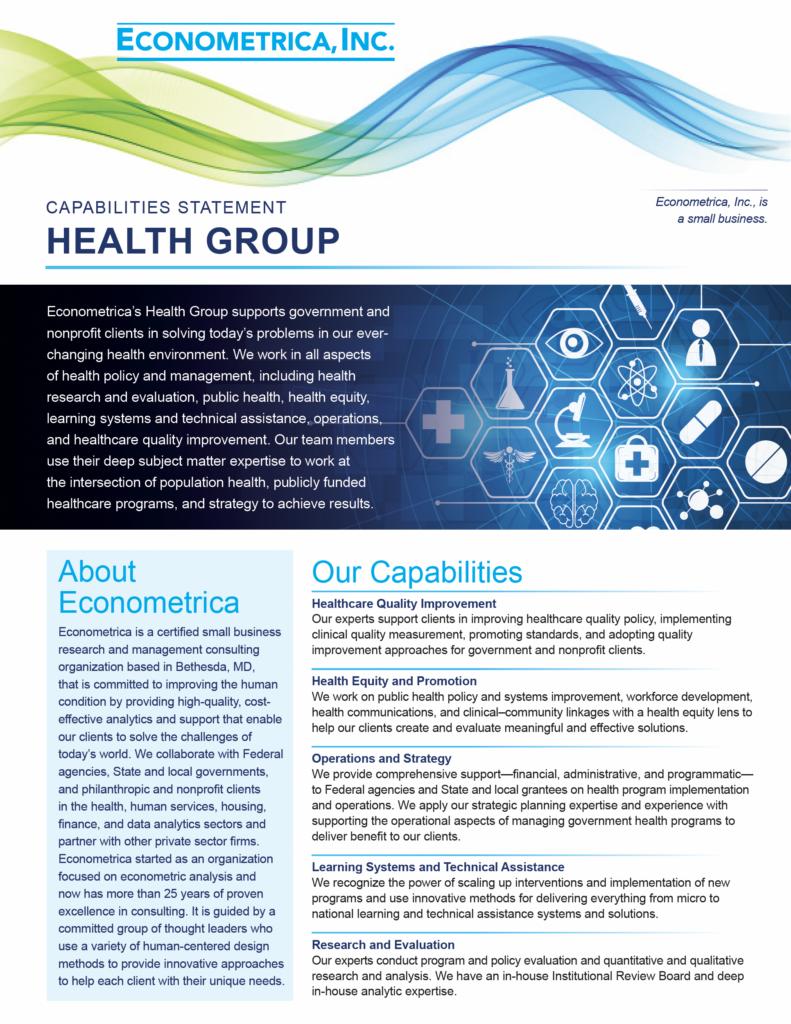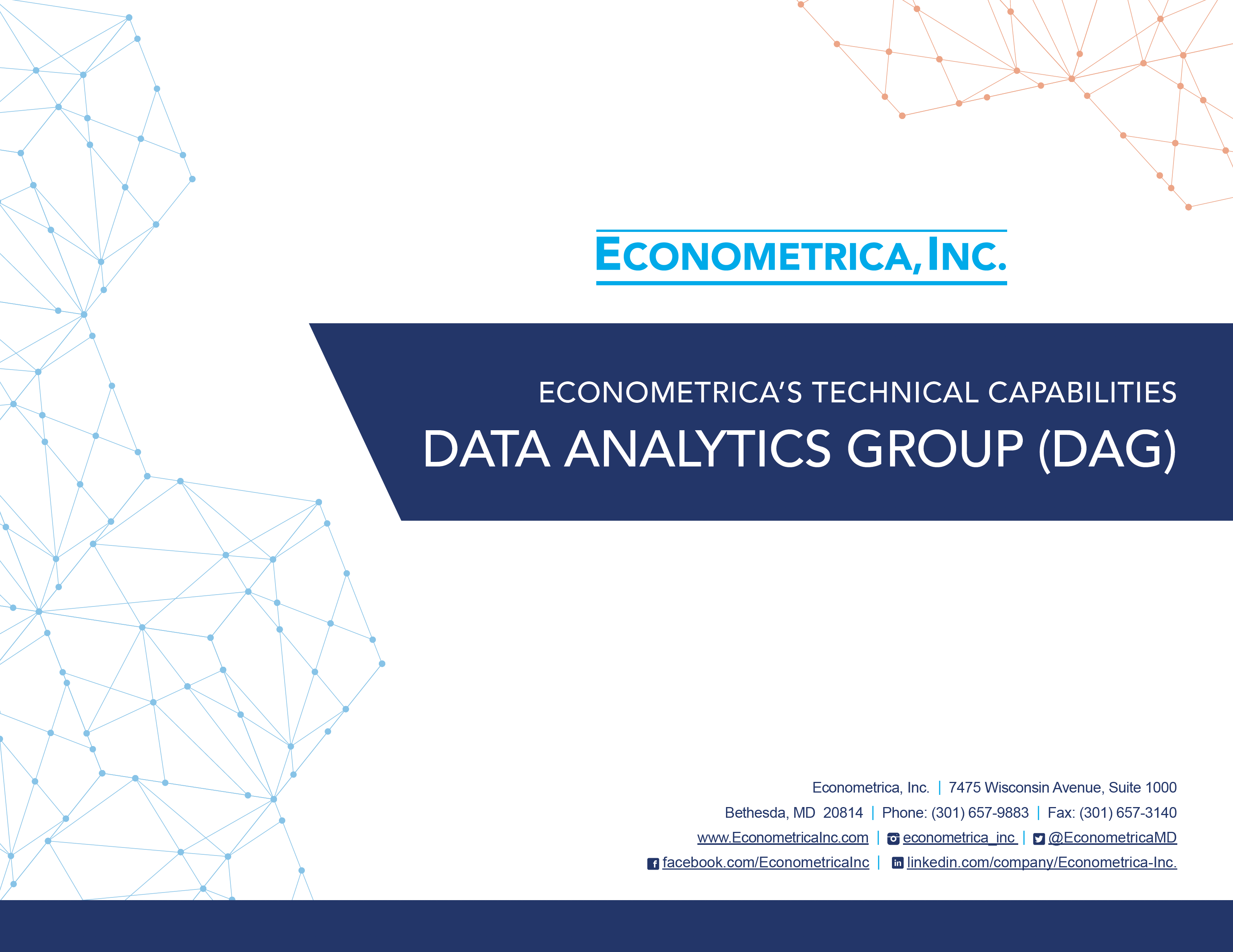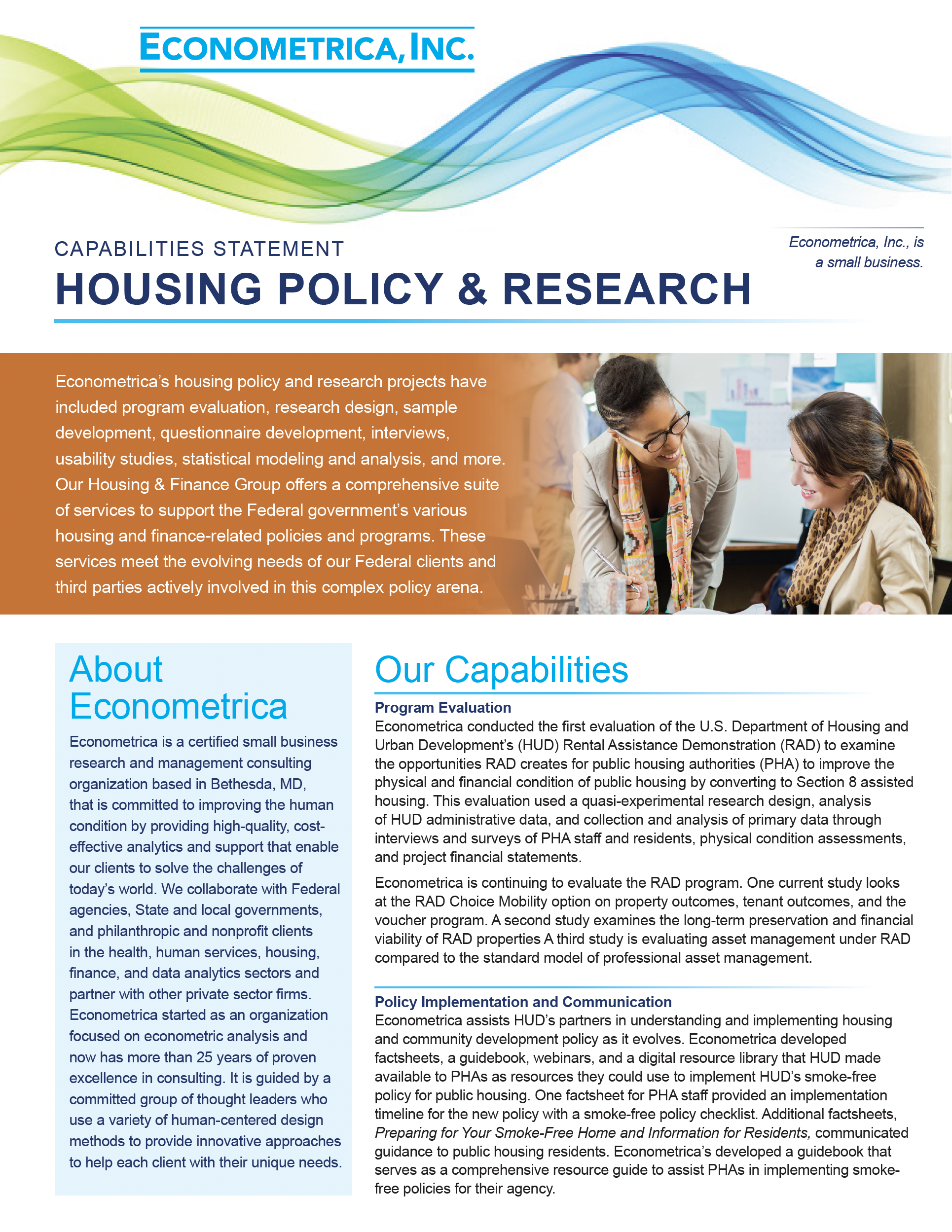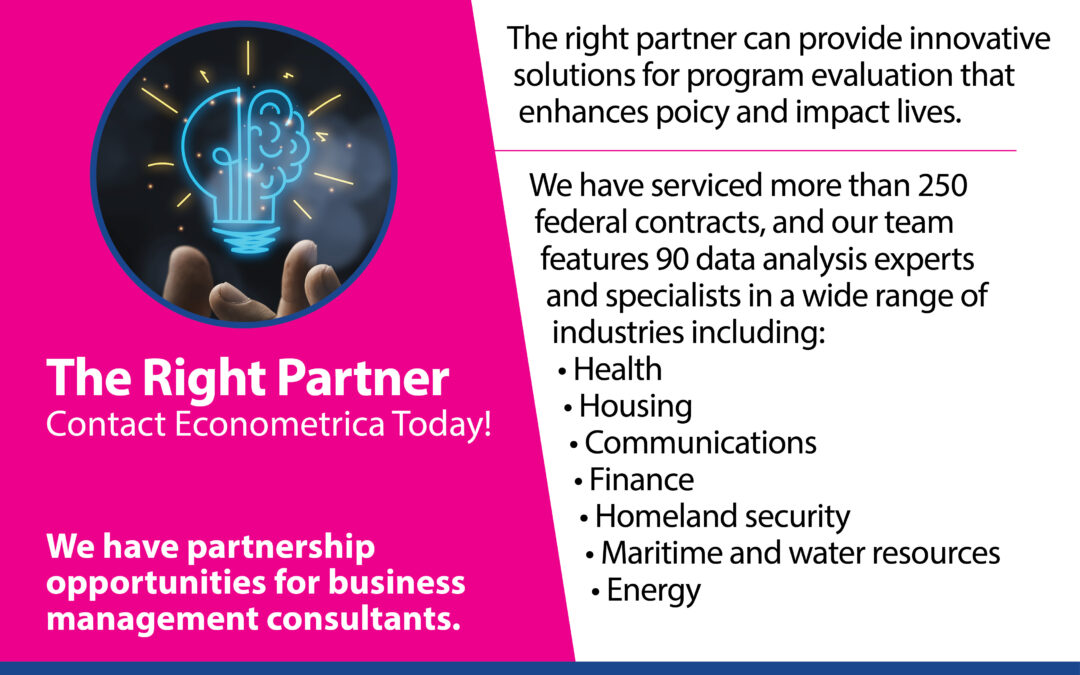
Partnership Opportunities for Business Management Consultants

Partner with Econometrica
As a large business management consultant, your company may want a reliable small business partner to focus on a specialized industry sector. Alternatively, you may need a customized program for data analysis. It may be especially difficult to know where to start if you are a local government agency, nonprofit, or small business tasked with grant and policy obligations.
In our 25 years of helping organizations understand and manage policies and procedures, Econometrica has serviced more than 250 federal contracts. Our team features 90 data analysis experts and specialists in a wide range of industries, including:
-
- Health
- Housing
- Communications
- Finance
- Homeland security
- Maritime and water resources
- Energy
- Grants management
Econometrica’s Program Evaluation Informs Policy and Impacts Lives
Program evaluation is a powerful management and policy-making tool. It provides critical information beyond whether a program achieved its intended outcome, offering a deeper understanding of how and why the program works. This valuable insight is essential to enhancing results, avoiding unwanted consequences, and replicating the program in new places.
Program evaluation can also impact lives in important ways. It can help improve access to healthcare for culturally diverse groups; make healthcare surveys easier for seniors to complete; and enhance how the Federal Government administers emergency management funding.
To realize its potential, however, a program evaluation must be made to fit the situation. It must deploy measurement and analysis tailored to the unique on-the-ground features of both the program and its field of impact. The resulting information then needs to be intentionally woven into the program’s decision-making structure. Over decades of practice, Econometrica has developed an innovative mixed-methods approach to evaluation that ensures the relevance, quality, and utility of each of our evaluation efforts.
Econometrica is a qualified and experienced program evaluator for government agencies, businesses, and nonprofits. We offer qualitative and quantitative data analyses with expert review and consensus that are smartly packaged and clearly reported. The result is insight and action.
To interpret how and why programs succeed or fail, our mixed-methods approach combines five technical fields: mathematics, statistics, simulation, economic decision theory, and advanced communication processes. We interview a program’s stakeholders and participants, document the program as operated, gather defining data, analyze for findings and insight, and support effective user review and response. Our evaluation digs deeper and produces more, providing insight into how best to administer and adjust policies and programs to benefit the people and organizations affected by them.
Experts in Deep Program Evaluation: Why Choose Us?
Our clients consistently turn to us for their program evaluation needs because of the unique array of skills and experience we offer, which includes:
-
- Innovative solutions for complex cases: We customize the quantitative and qualitative analysis in our mixed-methods evaluation to meet the needs of your organization.
- Industry experience and technical capabilities: Our highly trained team understands the policies and objectives that are crucial to the federal, state, local, nonprofit, and private sectors.
- Creative presentations: We deliver clear, concise, and complete reports that are easy to understand.
- Access to experts: Our friendly, approachable experts provide feedback throughout the project.
- Flexibility: We can conduct in-person program evaluation throughout the United States. We handle projects from large to small and adjust workflow to meet your project timeline.
Unique Challenges, Trusted Results in Many Settings
Econometrica’s recent success stories show the scale, range, and diversity of our work:
-
- Large-scale national programs: We evaluated Federal Emergency Management Agency (FEMA) grant programs that deliver more than $1.3 billion in annual funding across the United States, providing FEMA with new insights into program effectiveness and performance.
- Rapid response to decision maker needs: Our support of the feasibility evaluation for the Agency for Healthcare Research and Quality supplied actionable recommendations to help the public accurately respond to the Medical Expenditure Panel Survey, providing policymakers with rich new data.
- Innovative solutions to challenging measurement and analysis situations: While providing technical assistance to the Indian Health Service, we evaluated programs within the Tribal Injury Prevention Cooperative Agreement Program, including developing a novel online reporting system to collect standardized data across multiple sites. Our evaluation insights helped ensure that American Indian and Alaska Native people have access to comprehensive, culturally acceptable, and personal injury prevention health services.
Need Program Evaluation? Contact Us.
Our experts are here to help you. For a quick, direct response, visit us online and email a member of our executive staff in your preferred specialty.



